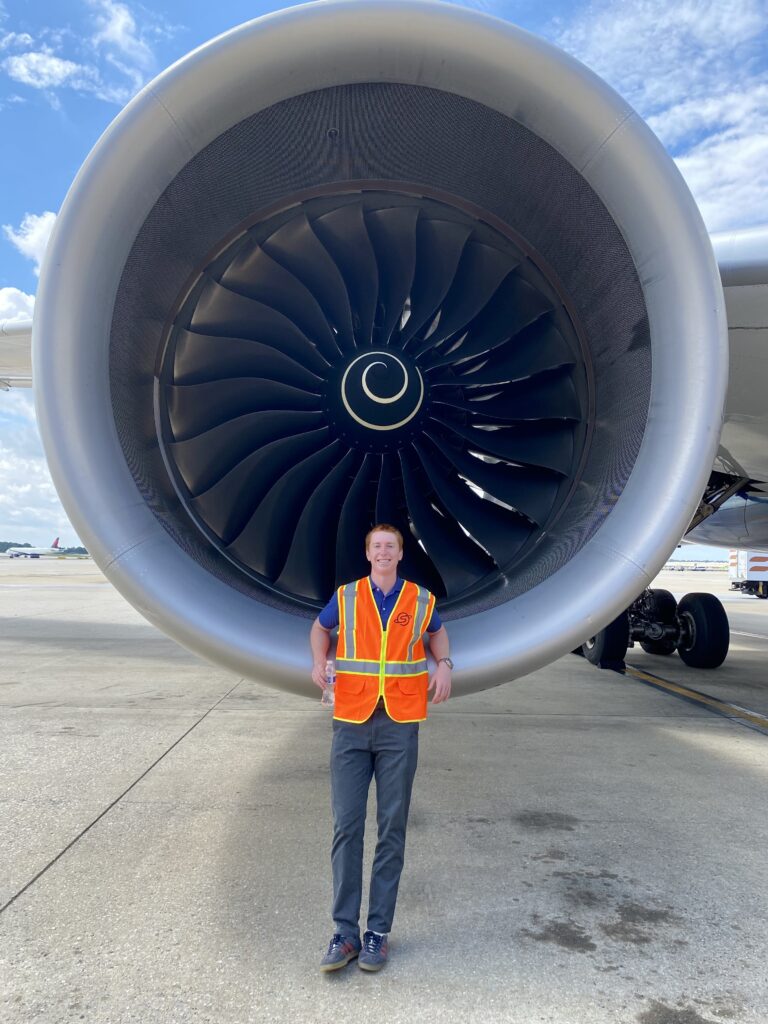At Springshot, we don’t just think about today’s operations; we’re focused on what’s next. That’s why this summer, we were thrilled to welcome back Oliver DeVito, a student at UC Berkeley and returning intern, who brought fresh energy and strategic insight to one of aviation’s more complex challenges: how to make day-of operations smarter, faster and more adaptive to the people actually doing the work.
Oliver’s research centered on inefficiencies in airport busing and Fixed Base Operator (FBO) environments, areas that are essential to aviation’s infrastructure but often sidelined when it comes to modernization. Over the course of his project, he conducted site visits, interviewed stakeholders and mapped out real operational workflows to uncover friction points that slow teams down.
Across both industries, his analysis revealed recurring issues: aging proprietary systems that had gone decades without modernization, reliance on radio communication prone to interference, and the absence of a single, unified platform to coordinate moving parts. These gaps created missed opportunities for efficiency, from unnecessary idle time to preventable service delays. By quantifying the potential operational gains from centralized task management and real-time visibility, Oliver identified how technology could reduce downtime, streamline communication and support smarter resource allocation.

What made Oliver’s work so valuable wasn’t just the quality of his analysis; it was the lens he brought to it. Like so many in the next generation of aviation talent, he sees technology not as an optional upgrade, but as a baseline expectation.
“There’s just a major disconnect between how things actually work and what the tech looks like,” Oliver said. “What really stood out to me was how manual a lot of these processes still are, especially when there’s a clear opportunity for automation and smart coordination.”
Instead of just flagging problems, Oliver focused on solutions. His research highlighted the opportunity for platforms like Springshot to provide centralized visibility, improve labor optimization and reduce the cognitive burden on frontline teams. And in doing so, he helped surface a broader point that aviation leaders can’t afford to ignore.
“If this industry wants to be ready for the future, it needs to think seriously about how people my age work. We grew up with technology that works for us… not the other way around.”
That mindset isn’t unique to Oliver. Gen Z professionals are entering the workforce with high expectations for efficiency, communication and purpose. They’re looking for careers where they can contribute quickly and where the tools match their ambition. And they’re not going to settle for clunky systems or outdated workflows.
At Springshot, we see that as a call to action. Our mission has always been to support the teams who keep the world moving, and that means equipping them with tools that evolve alongside the workforce. From our intuitive user experience to our data-first design, everything we build is meant to empower today’s crews while preparing the industry for tomorrow’s.
We’re grateful to Oliver for his time, insight and passion this summer. And we’re proud to help lead an industry conversation that doesn’t just include the next generation, but actively learns from them.